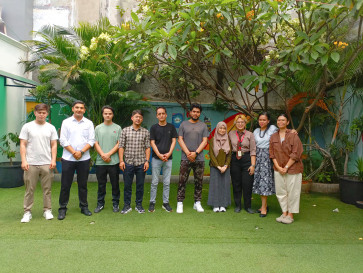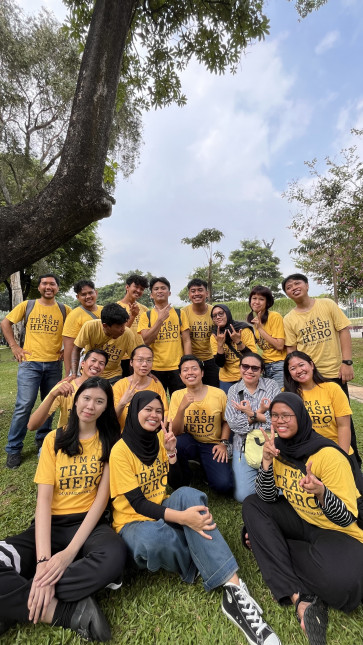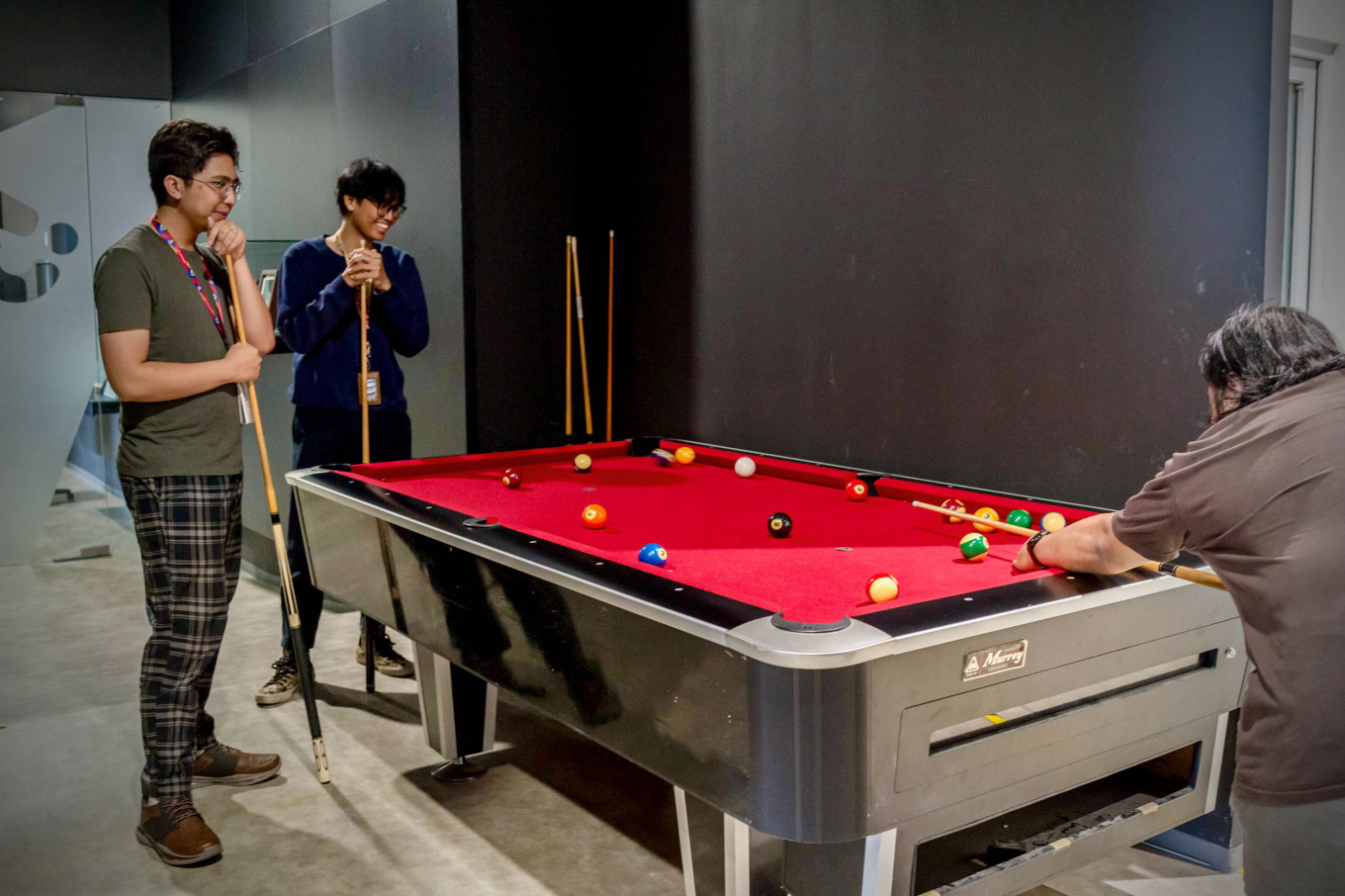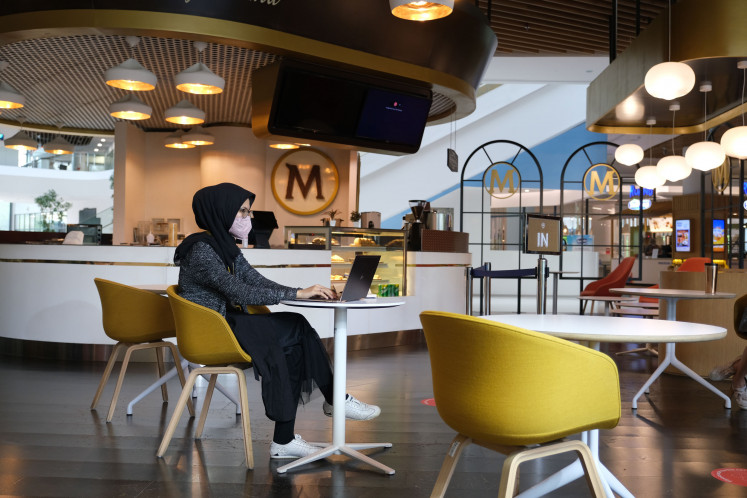Bukalapak’s employees enjoy a game of pool or two during their work breaks.
It’s past 5 p.m. on a weekday, but Nataya Ermanti isn’t rushing home. Instead, she’s heading to a boxing club she initiated at her office in the e-commerce platform Bukalapak.
Across town, Unilever Indonesia employees are lingering at the office. Some are shooting hoops with co-workers, others are getting haircuts at the in-house salon, while some are simply enjoying free Magnum ice cream bars and chatting with colleagues.
It seems Jakarta’s work culture is evolving, with employers increasingly aligning their practices with shifts in employee priorities—particularly in areas like work-life balance, mental health and general well-being.
“There has been a growing emphasis on mental health in Indonesian workplaces, with both government agencies and companies becoming more aware of its importance,” said Januar Rustandie, the International Labor Organization’s (ILO) national project coordinator for Improving Workers’ Rights in the Rural Sector of the Indo-Pacific with a Focus on Women.
“This has led to the integration of mental health considerations into existing labor laws and regulations, reflecting a positive shift toward prioritizing employee well-being.”
Sense of belonging

Thank you!
For signing up to our newsletter.
Please check your email for your newsletter subscription.
While most of us primarily seek jobs to earn a living, there is a growing recognition of the importance of meaningful connections at work, especially after years of pandemic-induced isolation.
This recognition is why companies like Bukalapak are creating social spaces where employees can connect outside of their work responsibilities. Bukalapak chief talent officer Suryo Sasono explained that the company now has more than 15 employee-driven Buka Clubs.
“You stop working at 5 p.m., and you socialize. If you want to continue working, it's up to you,” he said.
Nataya, the employee who initiated BukaBoxing, said the club has helped her maintain a healthy work-life balance. Some workers might hang out after office hours anyway, but these initiatives mean they don’t even have to leave the office to do so.
It makes her “look even more forward to going to work,” she said.
“It’s fun to meet fellow employees who share the same interests as me. I get to know people from other teams, which makes things easier whenever we have to team up for a project,” she added.
Read also: The great workplace debate: Remote, hybrid or office?
Me-time vs. work-time
While socialization is important, there’s also a growing understanding that workers need time alone to focus and uninterrupted personal time to recharge.
At Google Indonesia, employees can block out time to focus as long as there are no meetings that week. This is typically done at the end of the week, in what’s known as “Focus Fridays”.
At Bukalapak, a “self-care hour” is automatically blocked on everyone’s calendar. During this hour, no meetings are scheduled, allowing employees to enjoy a peaceful lunch or spend time with their families.
Workers can comfortably work in any corner of Unilever Indonesia’s 6-hectare headquarters. (Courtesy of Unilever Indonesia)
Unilever Indonesia encourages employees to block half a day each week without any meetings, which they can use for training or individual work.
“We believe that if our employees' well-being is well taken care of, it will empower them to give their best to the business,” said Kristy Nelwan, Unilever Indonesia’s head of Communication and chair of the Equity, Diversity and Inclusion Board.
Mental health support
When stress becomes overwhelming, many companies now provide access to therapists.
Bukalapak, for instance, has an on-site therapist from a third party to ensure neutrality and confidentiality. Employees can easily schedule a free one-hour session near the office and then return to work.
Google Indonesia has long included mental health care support in its employee benefits package.
“Many companies have implemented specific policies and programs to address mental health in the workplace, including stress management initiatives, counseling services and respectful workplace policies,” said ILO’s Januar.
Read also: The rise of Jakarta’s bite-sized tastemakers
More needed
However, the availability of these initiatives depends largely on the goodwill of individual companies, as Indonesia does not yet have specific workplace laws directly addressing mental health or worker well-being, unlike other countries with more generous regulations.
In Australia, for example, a new “right to disconnect” law was recently enacted for non-small business employers. This law gives employees the right to refuse contact outside working hours unless that refusal is “unreasonable.”
Could a similar regulation be adopted in Indonesia? Mikha Rahmadewi, chief human resources officer at Integra Group, believes regulations from other countries should not be copied outright.
Instead, individual companies can introduce programs that address employee well-being, tailored to their unique industries, workforce culture and locations.
“In essence, the adoption of progressive employee support policies is not just a matter of social responsibility; it has become an increasingly strategic necessity for businesses to remain competitive, control costs and meet the evolving expectations of their stakeholders,” she said.
At the end of the day, regardless of a company’s policies and benefits, the most crucial factors for employee well-being are respect and genuine support.
“Initiatives like wellness programs, better employment benefits or work flexibility can be beneficial in practice, but their true effectiveness lies in a genuine commitment and ongoing effort to create an inclusive workplace environment where employees feel valued, respected and supported,” said Mikha.
Januar echoed this sentiment. Happy and engaged employees, those “who feel valued and supported,” are “more likely to be productive and engaged in their work,” he said.
Read also: Waves, Wi-Fi and work: Into the Nomadland of Canggu
This article is part of The Weekender, a biweekly tabloid that appears in the Saturday edition of The Jakarta Post. Offering a variety of feature articles on lifestyle and culture, it aims to enriching your reading experience. Subscribe here to access The Jakarta Post's Saturday edition and all Premium content.
























